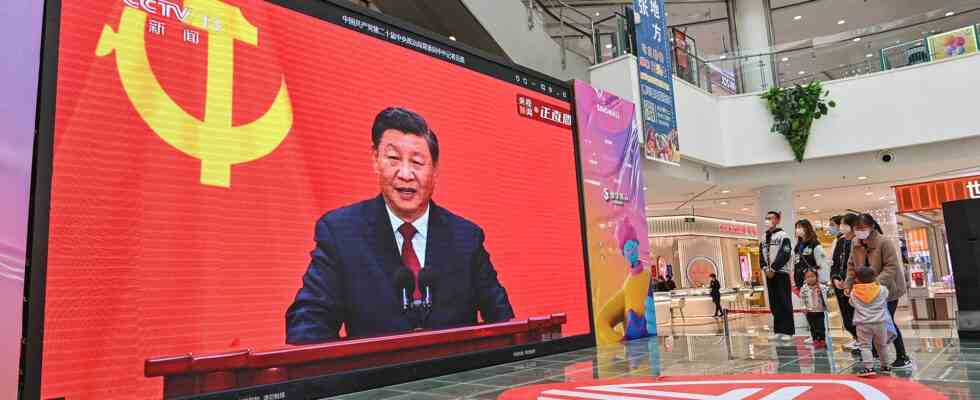analysis
Status: 10/24/2022 7:32 a.m
China’s head of state and party leader Xi has expanded his power. What consequences does this have for his handling of the country’s problems? The zero-Covid policy annoys many – and internationally, China is becoming more and more isolated.
When Xi Jinping presented his new management team to selected representatives of the press yesterday, what most observers had already suspected was finally clear: the most powerful man in China since the founder of the state, Mao Tsetung, has expanded his power even further. Only men who support the 69-year-old’s autocratic course are represented in the seven-strong Politburo Standing Committee, which he himself heads.
For Katja Drinhausen from the China think tank Merics in Berlin, too, Xi is the big winner: “The first thing that can be gleaned from the composition of the new Standing Committee of the Politburo – really the center of power of the Communist Party – is that Xi is almost entirely line and that it really is his dream team that he has put together.”
Loyalty more important than political action
Shanghai party leader Li Qiang took the stage behind Xi – a sign that he is likely to become prime minister in the spring. Li Qiang was heavily criticized for the chaotic lockdown management in Shanghai in the spring. According to observers, the fact that he is now to become number two in the country after the head of state and party leader shows that loyalty to Xi Jinping is more important than political action.
Prime Minister Li Keqiang and other politicians who are considered moderate are no longer represented in the most important decision-making body. The decades-established practice of different party factions making decisions together is finally over.
Xi’s central leadership has been consolidated
With the re-election as General Secretary in the spring, Xi Jinping can be confirmed by the National People’s Congress for a third term as head of state. To this end, he has abolished the two-term limit, and the 69-year-old is also disregarding the age limit of the Communist Party.
This is what he has been working towards for the past ten years, ruling China with an iron fist, tightening controls and censorship and getting rid of opponents. The party congress, which ended on Saturday, further tailored the party constitution ideologically to Xi Jinping and consolidated his central leadership role.
In his speech yesterday, Xi Jinping predicted a bright future for China under the leadership of the Communist Party, but again warned of difficult times – without being specific.
China is increasingly isolated
The challenges in the coming years are great: China’s economy is in crisis – partly because of the economic war with the USA and because of the strict zero-Covid policy in the country. More and more people are also annoyed by the tough lockdowns, travel bans and constant mass tests. Chinese society is aging rapidly and too few children are being born.
In addition, China is increasingly isolated internationally. On the one hand, the People’s Republic has isolated itself more and more in recent years. On the other hand, many countries are increasingly critical of doing business with China – as can be seen in the recent discussions about the planned participation of the Chinese state-owned company Cosco in a terminal in the Port of Hamburg.
Scholz’s visit could be used for propaganda purposes
The German economy continues to be heavily dependent on China. At the beginning of November, Chancellor Olaf Scholz wants to travel to the People’s Republic with a business delegation. He may be the first foreign leader to meet Xi Jinping after his re-election as Secretary-General. Critics say that the SPD politician is sending the wrong signal. In China, the chancellor’s visit will be used for propaganda, according to the China expert Drinhausen:
In any case, this will certainly make waves and will be used very consciously in the Chinese media and also by party media to say: Look, dear people, Germany in particular as a very, very important partner country and as a well-established liberal democracy is further ahead willing to stand by our side and join us, so to speak, in China’s development into a great future. And that is, of course, a signal effect that you have to take into account.
Xi Jinping’s Third Term: What Does It Mean?
Benjamin Eyssel, ARD Beijing, October 24, 2022 6:24 a.m

